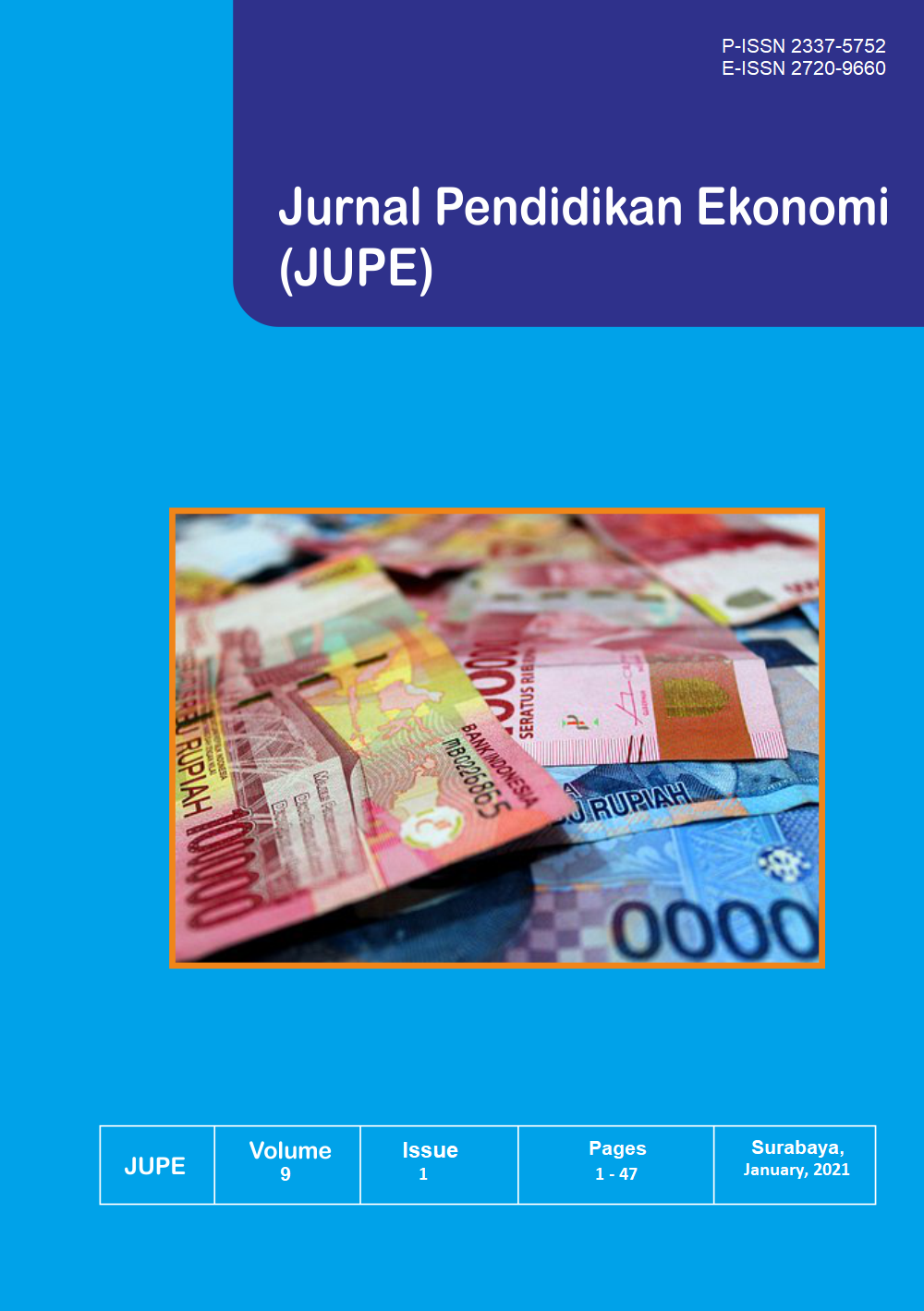Muatan Etika Dalam Pengajaran Akuntansi Serta Pengaruhnya Terhadap Perkembangan Moral Mahasiswa Akuntansi
DOI:
https://doi.org/10.26740/jupe.v9n1.p43-47Keywords:
Muatan etika, Perkembangan moral, Pembelajaran akuntansiAbstract
Banyaknya kasus pelanggaran etika yang terjadi pada profesi akuntan publik menjadikan isu ini sangat krusial untuk diteliti. Penelitian ini bertujuan untuk menginvestigasi hubungan muatan etika dalam pengajaran akuntansi dan perkembangan moral mahasiswa Akuntansi. Muatan etika dalam kurikulum pendidikan akuntansi dinilai penting untuk menumbuhkan sikap etis mahasiswa serta meningkatkan perkembangan moral mahasiswa Akuntansi. Penelitian ini dikategorikan sebagai penelitian kuantitatif dengan pendekatan eksplanasi. Pengumpulan data menggunakan angket dengan menggunakan teknik penyampelan random sampling. Sebanyak 154 mahasiswa Akuntansi berpartisipasi dalam penelitian ini. Hasil penelitian menunjukkan bahwa terdapat pengaruh yang signifikan muatan etika terhadap perkembangan moral mahasiswa Akuntansi. Implikasi penelitian bahwa penting sekali bagi dosen untuk memberikan muatan-muatan etika dalam perkuliahan untuk mencetak mahasiswa yang memiliki nilai-nilai moral yang tinggi.
Downloads
Downloads
Published
How to Cite
Issue
Section
License
Copyright
- Authors retain copyright and grant the journal right of first publication with the work simultaneously licensed under a Creative Commons Attribution License that allows others to share the work with an acknowledgment of the work's authorship and initial publication in this journal.
 Abstract views: 852
,
Abstract views: 852
, PDF Downloads: 499
PDF Downloads: 499











